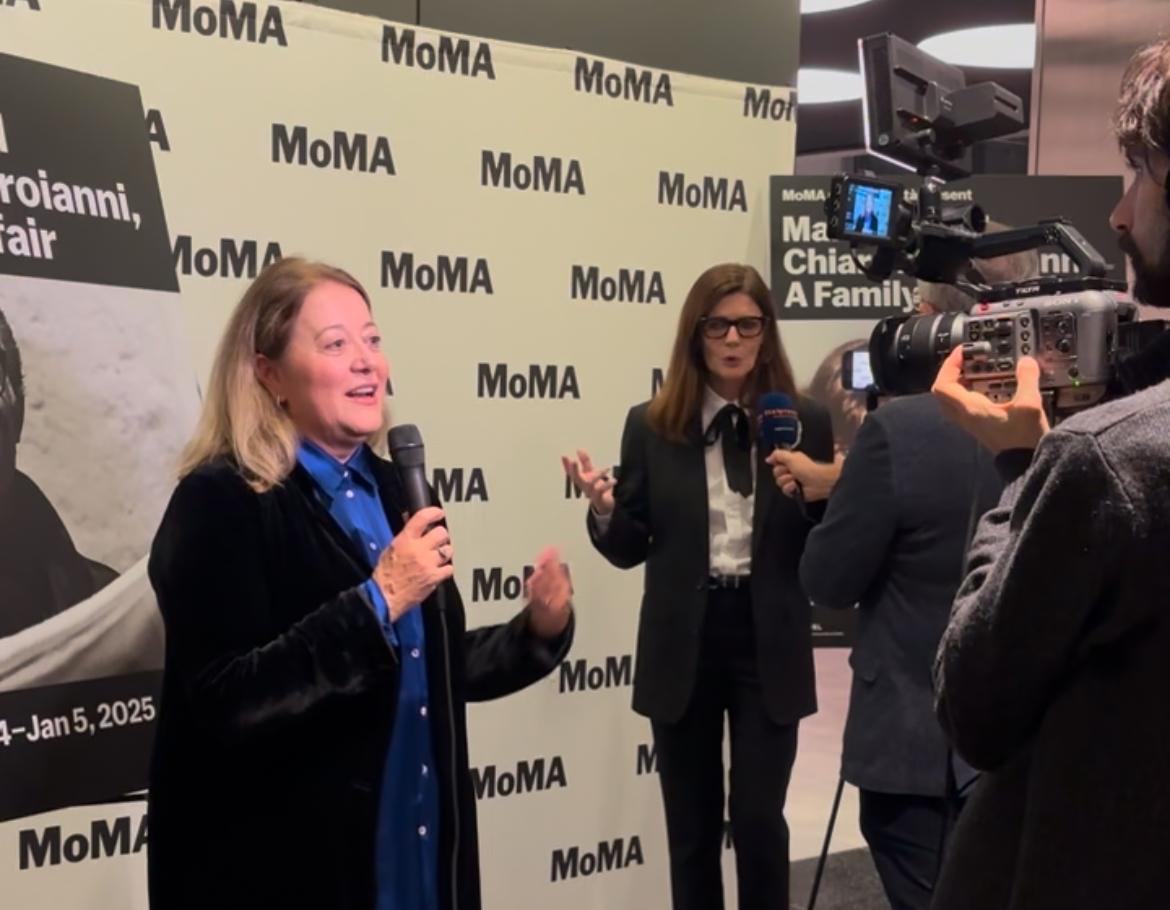Over the course of his lengthy career, which spanned from the 30s to the 90s, legendary Italian actor Marcello Mastroianni starred in over 100 films. Many of them, including La Dolce Vita and 8 ½, went on to be considered classics of Italian cinema. Today, Cinecittà, the preeminent film institution in Italy, is working to preserve his legacy worldwide under the leadership of President Chiara Sbarigia.
The recent restoration of White Nights is the latest step forward in this project. On Thursday, December 12th, the film was screened here in NYC at the MoMA during the opening night of “Marcello and Chiara Mastroianni, A Family Affair,” a film series jointly organized by the Museum of Modern Art and Cinecittà.
“We’re very skilled in conservation and restoration,” said Sbarigia. “It’s important because these films should remain available to the public and to new generations.”
Cinecittà has an archive of over 5000 restored films according to Sbarigia, and the list is expanding. Restoration efforts are largely carried out in collaboration with the Istituto Luce-Cinecittà, one of the oldest film archives in Europe, founded in 1924. The newly revamped films are then screened at festivals and events around the world and made available to cinema lovers.
“It’s important to bring our Italian cinema to this magnificent place of art,” explained Sbarigia, referring to MoMA’s cultural significance in NYC. The museum has screened Italian cinema classics restored by Cinecittà multiple times before. In 2020, they hosted a retrospective on director Federico Fellini in honor of his centenary.
However, this is MoMA’s first retrospective on Italian cinema to jointly celebrate the works of a father and daughter. Chiara Mastroianni, the daughter of Marcello Mastroianni and French actress Catherine Deneuve, has been acting for over 30 years. The film series will include several of her own films, including the US premiere of Marcello Mio, in which she will explore her experience of grappling with her father’s legacy: “It’s very beautiful that this time we’re able to bring the cinema of the past, from a great icon of our cinema, together with the films of his daughter,” commented Sbarigia.
White Nights (1957), directed by Luchino Visconti, is about two lonely people, Mario and Nina, who connect over a few intense nights, despite Nina still waiting for her long-lost lover. The film dives into the pain of unrequited love and the fleeting nature of hope. In one scene, which his daughter Chiara says was improvised, Mastroianni starts dancing wildly.
The scene reflects the spontaneity, charm, and vulnerability that mark his celebrated acting style.
“In my opinion, [Mastroianni] represented, on one hand, an icon of Italian masculinity. He was handsome, charming, and funny. But on the other hand, he was someone who broke all the molds because he didn’t adapt to the clichés of being the handsome man, which could have been an easy path for an actor.”
Mastroianni played several controversial roles throughout his career. In A Special Day (1971), he played a gay man at a time when the topic of homosexuality was still taboo in Italy. In Ginger and Fred (1986), he experimented with the role of a silly old man who didn’t take himself too seriously.
“He was a very courageous person,” says Sbarigia.
“Marcello and Chiara Mastroianni, A Family Affair” will run at the MoMA until January 5th, with new films scheduled each week.

